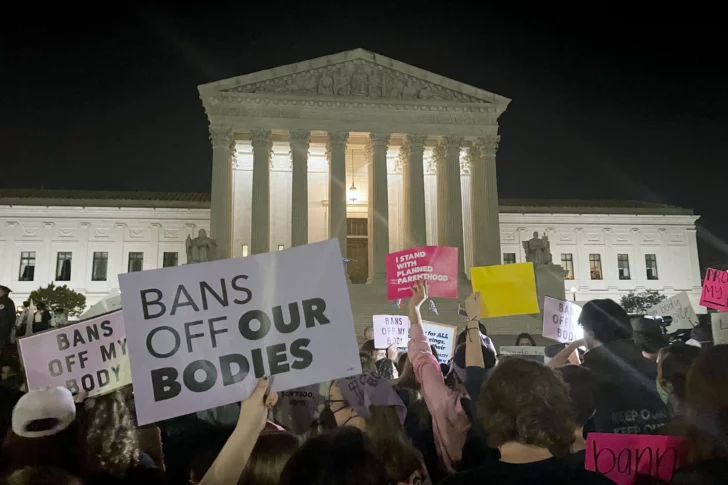The Supreme Court has voted to overturn Roe v. Wade, according to a draft opinion that was leaked to Politico. It’s a shocking development that would end the constitutional right to an abortion that has been enshrined since 1973.
The leak itself is unprecedented. Never in the court’s modern history has an opinion been made public while a case was pending, Politico noted. As a first draft, the opinion is subject to changes—and justices could change their votes before the final document is released, likely in the next two months.
How they voted:
- Justice Samuel Alito, who wrote the decision to overturn Roe, was joined by Clarence Thomas, Neil M. Gorsuch, Brett M. Kavanaugh, and Amy Coney Barrett (the latter three were appointed by President Trump).
- Stephen Breyer, Sonia Sotomayor, and Elena Kagan are working on at least one dissent. Chief Justice John Roberts’s vote was unknown, but sources told CNN that he reportedly does not want to completely overturn Roe.
Alito, in the majority opinion, blasted Roe, calling it “egregiously wrong from the start.” He said the issue of abortion should be left to the “people’s elected representatives” and not the court system.
Why was Roe even being considered? A Mississippi law that would ban abortions after 15 weeks of pregnancy was appealed all the way up to the Supreme Court. Some SCOTUS experts thought that the conservative-heavy court might narrow Roe’s scope…but it seems to have tossed it all together.
What happens next?
Should SCOTUS overturn Roe v. Wade, abortion laws would be left to individual states. That means immediately following the final ruling, abortions would become illegal in 13 states that have introduced “trigger laws” to ban the procedure. At least 17 states plus Washington, DC, have laws on the books to protect abortion rights in the same scenario.
But even before then, expect a seismic shift in American political discourse ahead of the midterm elections this fall. Corporate America, which has increasingly weighed in on hot-button political issues, will likely speak up as well. Just yesterday, Amazon joined several other corporate giants that have pledged to reimburse US employees who have to travel for abortions as states have moved to pass restrictive abortion laws. In fact, states passed 106 laws restricting abortion access in 2021, the most in any year since the Roe decision.
Big picture: Polls have consistently found that a majority of Americans oppose overturning Roe v. Wade. In a Marquette University Law School poll from January, 72% were opposed to striking it down, while 28% were in favor.

